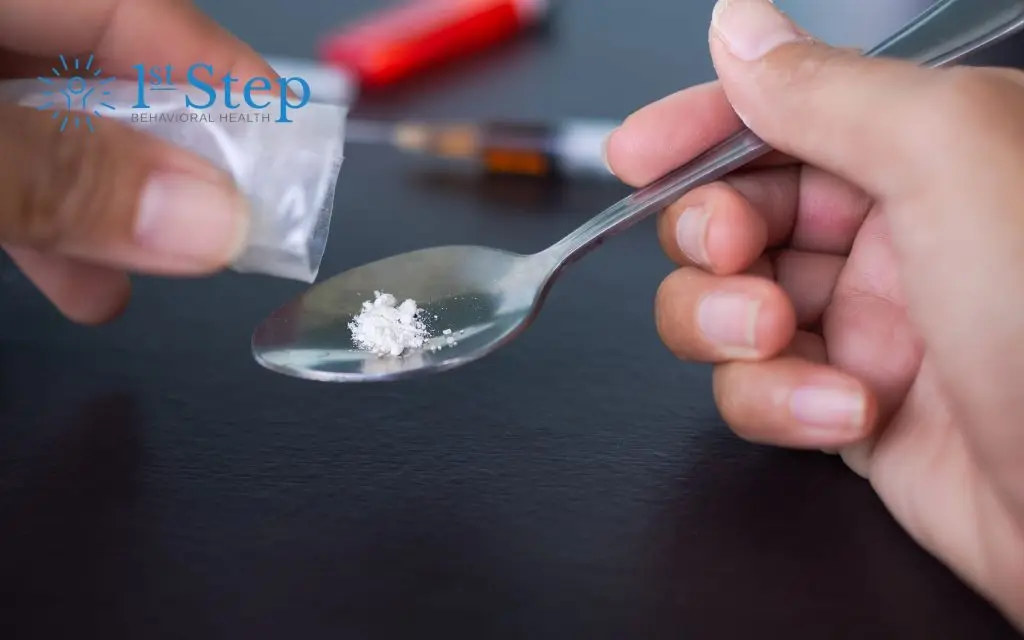Special K (Ketamine) is a dangerous drug gaining popularity for recreational use in the United States. Medical professionals have been using this drug during medical procedures for decades. However, people may abuse this drug for its sedative effects and become addicted to it.
This article will explore the Special K drug and its risks. You will learn:
- What special K is
- The effects and risks of ketamine
- How ketamine abuse and addiction occur
- How to treat ketamine abuse
- Where to find comprehensive addiction treatment programs
If you or someone you love struggles with ketamine abuse or substance use disorder (SUD), you are not alone. Contact the specialists at First Step Behavioral Health to learn about our comprehensive treatment and support programs.
What is Special K?
Special K is a slang term for a drug called ketamine. Ketamine is an FDA-approved dissociative anesthetic. Doctors and veterinarians utilize ketamine during procedures requiring anesthesia, including surgeries.
In addition to “Special K,” other slang terms for ketamine include:
- K
- Vitamine K
- Cat tranquilizer
- Jet
Recently, researchers have begun to explore the effectiveness of a ketamine nasal spray for treatment-resistant depression. Studies suggest that this drug may be effective in treating other mental health conditions, including bipolar disorder and anxiety. Some medical professionals have also begun to explore ketamine as a therapy for chronic pain.
While medical professionals have been using ketamine since the 1970s, ketamine abuse has become more common in recent years. People may take this potent drug for its sedating, dissociative effects.
People who abuse ketamine may steal it from veterinary clinics or medical facilities. Illicit ketamine also comes from dealers in foreign countries.
Ketamine is most commonly available as a whitish powder that people snort, swallow, or smoke. It is also available in clear liquid form, which users stir into drinks or inject.
Understanding the Effects and Risks of Ketamine
Ketamine produces side effects similar to PCP. Common side effects of ketamine include:
- Feelings of disconnection
- Relaxation
- Amnesia
- Detachment from pain
- Distorted sensory perceptions
- Elevated body temperature
- Auditory or visual hallucinations
- Increased heart rate and blood pressure
- Nausea
- Dizziness
- A sense of uneasiness
- Paranoia
Users may experience the effects of ketamine for as little as 15 minutes to several hours. The method of ingestion and other factors can affect how long these effects last.
People who take ketamine may lose awareness of their environment. They may be more vulnerable to injuries and death from accidents, drowning, exposure to hot and cold, and more. People who abuse ketamine are also more likely to be the victim of an assault or other crimes.
People who use Special K repeatedly may develop tolerance to it, meaning they need to use more to get the desired effects. Over time, people may take dangerously high doses of ketamine, putting them at risk of overdose.
People who use ketamine frequently may also develop physical dependence. It can be very challenging to stop using ketamine once you develop a dependence on it. Most people with Special K addiction require comprehensive treatment and ongoing support to detox and avoid relapse.
What are the Long-Term Effects of Special K Abuse?
Medical and mental health experts must do more research to understand the long-term effects of Special K abuse more clearly. However, some research suggests a link between ketamine abuse and long-term health risks.
According to the National Institute on Drug Abuse (NIDA), ketamine use may cause adverse effects that include:
- Bladder pain
- Kidney damage
- Chronic abdominal pain
- High blood pressure
- Long-term memory issues
Research from 2022 showed that prolonged ketamine abuse can change the function and structure of the brain. These changes may result in treatment-resistant depression and cognitive impairment.
More research is needed to determine the extent of long-term complications from ketamine use. However, it is clear that ketamine abuse is hazardous and has the potential for long-ranging consequences.
Recognizing and Treating Special K Abuse
People may abuse Special K for the drug’s sedative and calming effects. However, abusing Special K can lead to severe short and long-term health complications. It is important to seek treatment as soon as you recognize a problem.
Some of the signs of Special K addiction include:
- Using higher doses of ketamine or taking it more often
- Spending a lot of time and energy getting and using ketamine
- Neglecting responsibilities at work, home, or school
- Isolating or only spending time with others who abuse addictive substances
- Experiencing cravings for ketamine
- Needing to use more ketamine to get the desired effects
- Having withdrawal symptoms when not using ketamine
People with ketamine addiction typically feel that their substance use is not in their control. People usually require intensive treatment to stop using ketamine and avoid relapse.
Treatment for Special K abuse and addiction typically starts with a medical detox program. Then, people must receive tailored, comprehensive treatment to address the underlying causes of their substance use.
People participate in medical care, mental health treatment, education, and holistic therapies throughout treatment. These therapies can help people understand and address their substance use and work toward lifelong recovery.
Find Treatment Now
If you or someone you love struggle with substance abuse or addiction, you are not alone. Contact the First Step Behavioral Health specialists to explore our treatment and recovery support programs. You may ask questions, verify insurance, or schedule an appointment by reaching out today.

